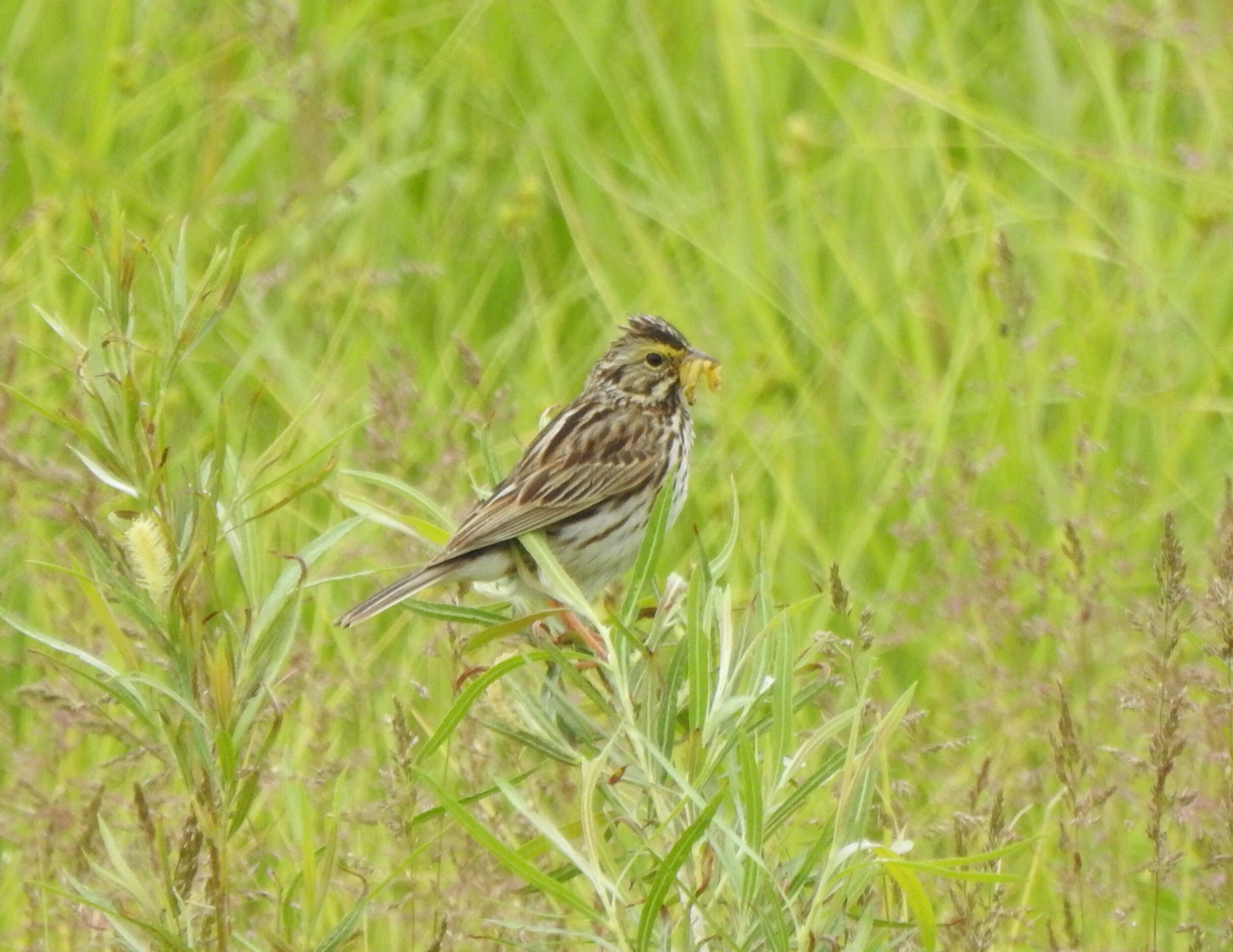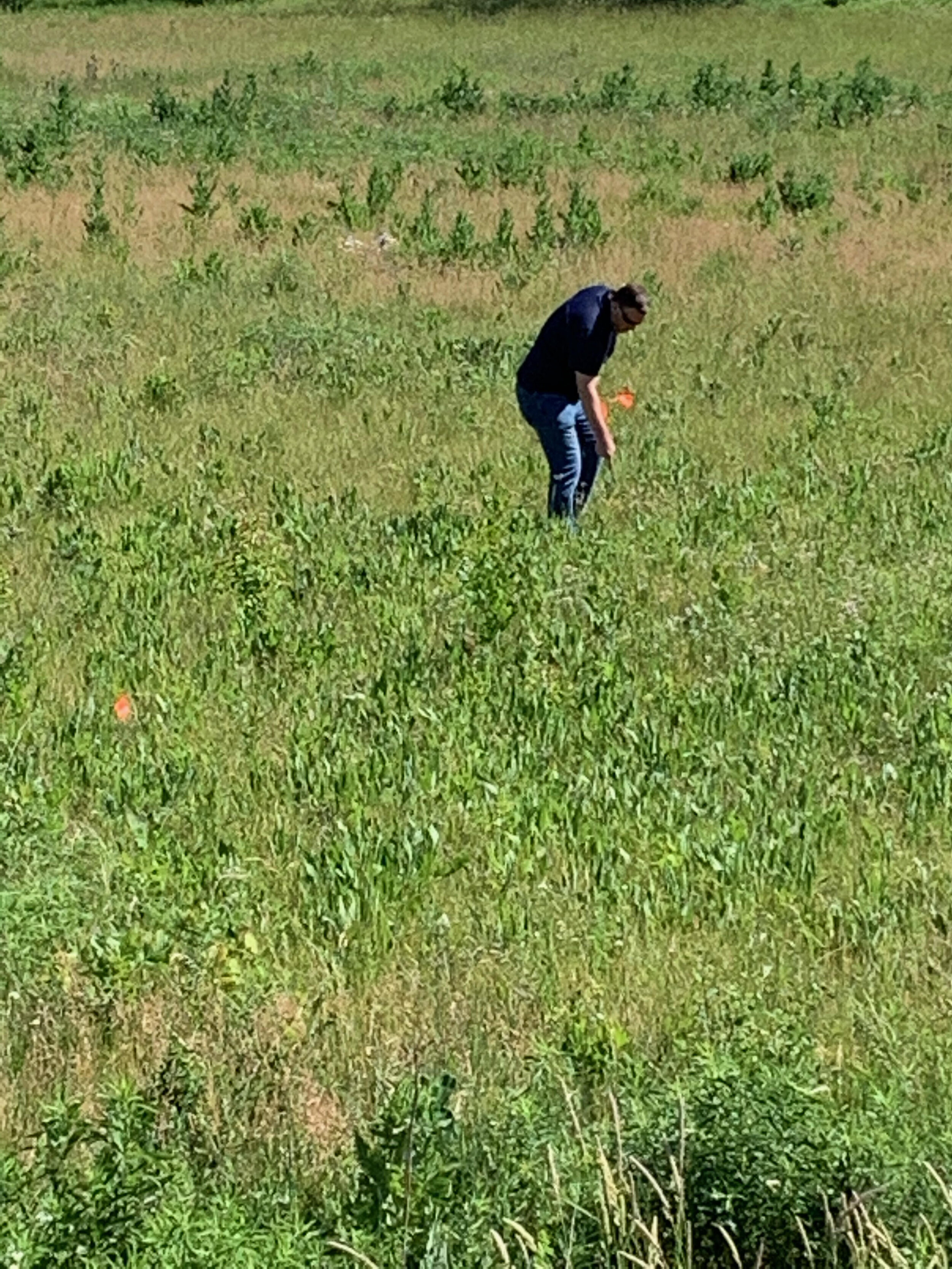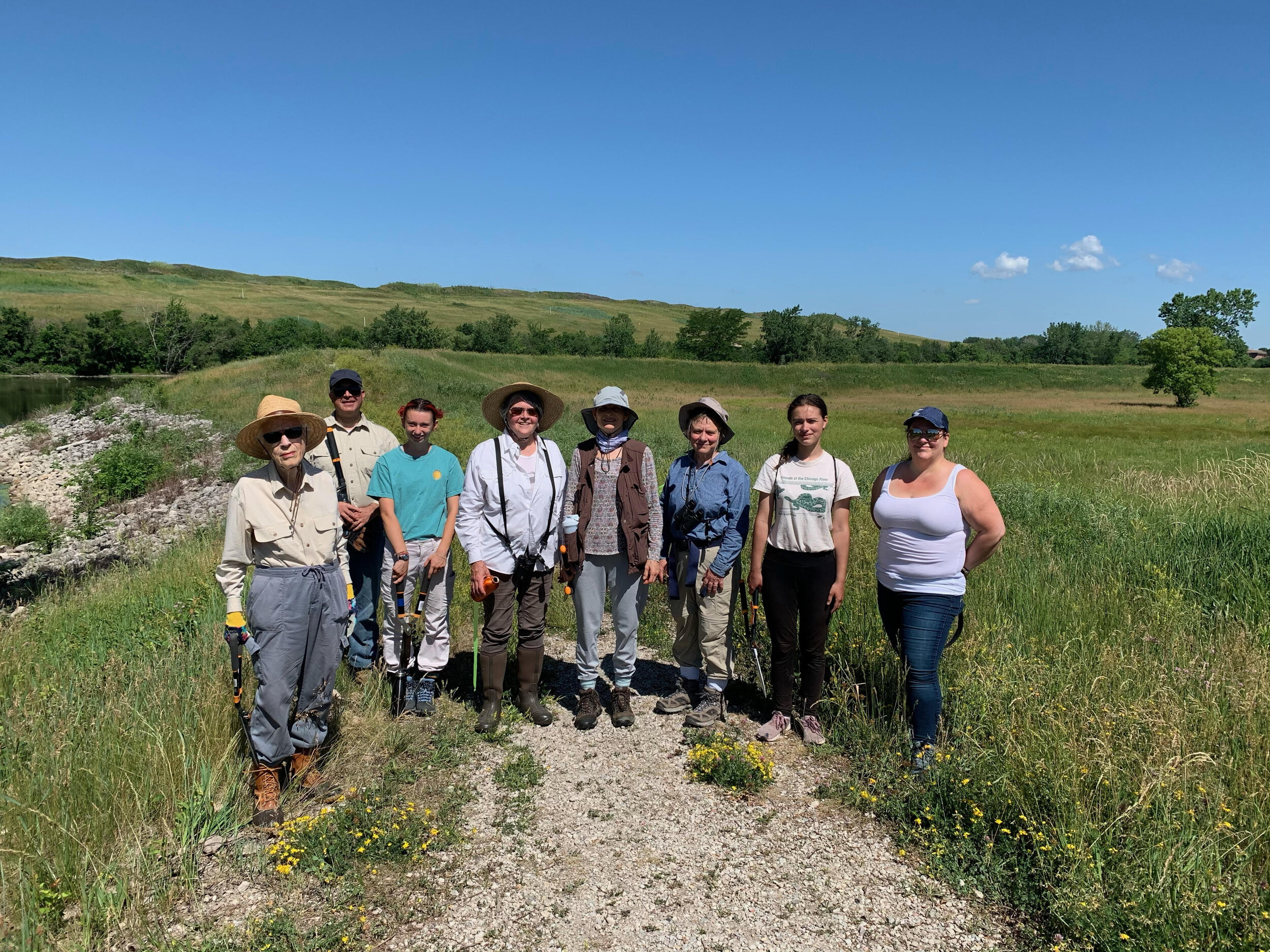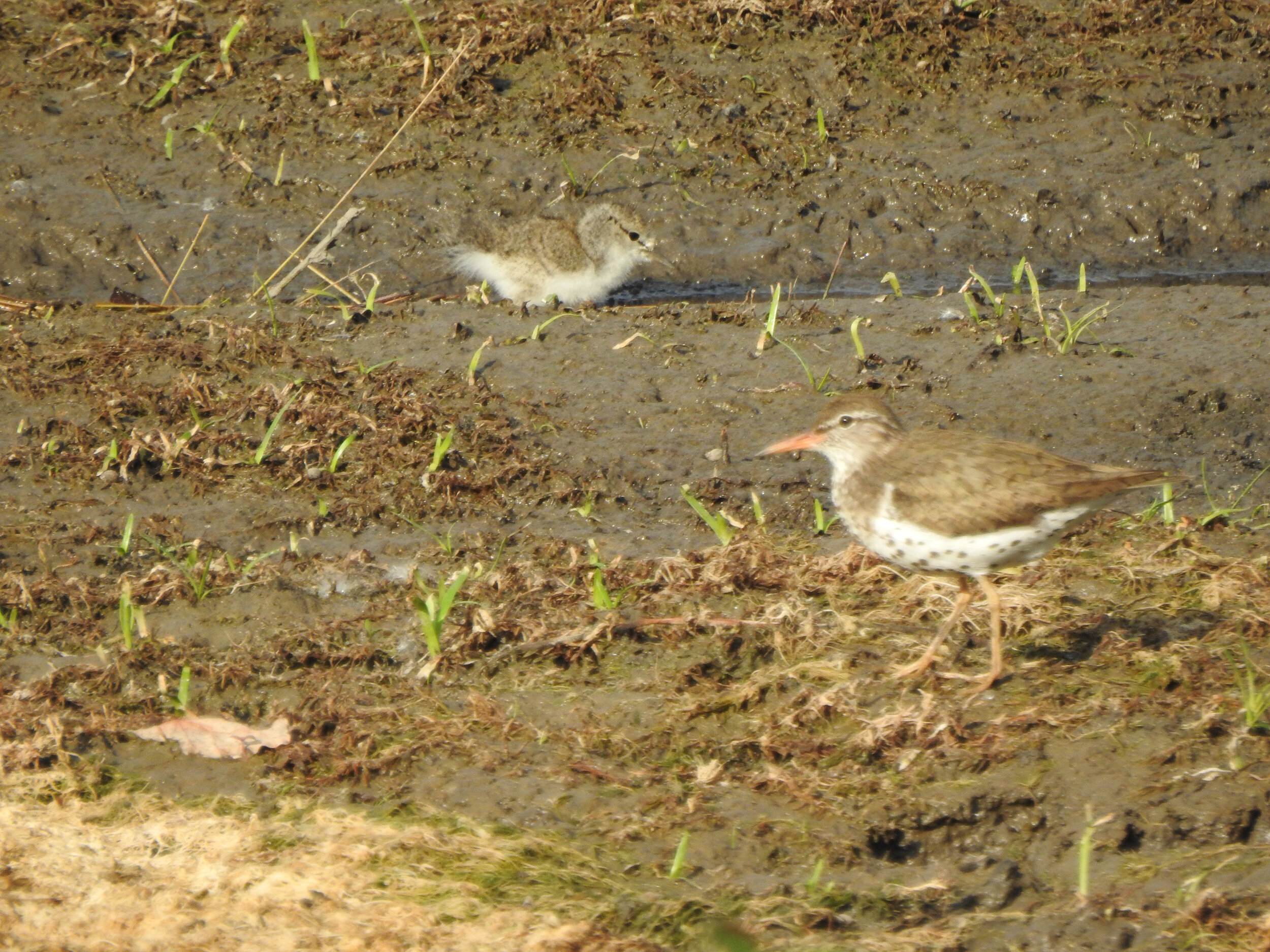Savanah sparrow, photo: Jeff Bilsky
Bird conservationists in the Chicago area have a big job to do. The bird-friendly building ordinance. Retrofitting windows. Feral cats. Insecticides. Bird-friendly coffee. Do you know what the biggest threat to birds in North America is? Habitat loss. Here’s a story about one of many things that birders, working with CAS, are doing to improve bird habitat in our area.
Jeff Bilsky couldn’t believe what he was seeing. A favorite grassland birding spot - one that a week ago had been full of savannah and song sparrows, spotted sandpipers and eastern meadowlarks - was now entirely mowed. What happened to all the ground-nesting birds? That was in early summer of 2020, and the site was Techny Basin North in Northbrook, owned by the Society of the Divine Word and leased and managed by the Metropolitan Water Reclamation District (MWRD) as a floodwater retention area. The destruction seemed especially vexing because the same thing had happened two years ago - and last year the problem seemed to be solved.
The site, north of Willow Road on the east bank of the west fork of the Chicago River, consists of three basins that fill with floodwater after a big rain. Surrounded by berms with drains through to the river, the basins are large Eurasian meadows with sizable patches of invasive species - reed canary grass and teasel in two, and cattail and phragmites in the third. Loose vegetation and trash concealed in the grasses can clog the drains, causing maintenance problems.
This spot is beloved by birders. Not only do the grasslands host part of the largest remaining population of grassland birds on the North Shore, the river’s mudflats fill up with migrating shorebirds. Herons and ducks use the river, and riparian species like willow flycatcher, yellow warbler and warbling vireo nest in streamside trees.
The MWRD maintains the area by mowing, which can be done in the fall after birds are done nesting. In 2018, however, the entire site was mowed during nesting season. Birders Tamima Itani and Jeff Bilsky, with help from Commissioner Debra Shore and CAS president Judy Pollock, arranged for a more targeted mowing in order to spare ground-nesting bird species, and in 2019, it seemed the problem was solved. That year, the mowing was limited to patches of weeds, largely sparing the nesting areas.
However, this informal arrangement lasted only as long as the mowing contractor who could recognize invasive weeds - who retired. By 2020, a new set of players were on the scene and the birds were forgotten.
In the meantime, local environmental activists Dr. Sally Stone and Rob Sulski, a retired Illinois EPA engineer specializing in stormwater management and pollution control, were also working to improve Techny Basin North. They hoped to convince the MWRD to convert the floodwater basins to native landscape - natural, beautiful, better for birds and pollinators, easier to maintain, and effective for stormwater management. This would also help a downstream floodwater basin in Glenview: Techny Basin, whose conversion to native landscape began in 1998. The Glenview Natural Resources Commission Chair, Henrietta Saunders, was concerned because seeds from the invasive species at Techny North wash downstream and cause problems in Glenview.
COVID came and significantly interrupted normal planning processes and communication. The result was more widespread mowing than the previous year, which caused the scene that alarmed Jeff. Since conversion to prairie requires mowing of invasive weeds before they set seed - when the young birds are still in their nests - MWRD had moved up the date of their annual site mowing to prevent weed seeds from falling and contaminating the site as well as Glenview's downstream site.
Judy, Jeff and Tamima again asked for help from Commissioner Shore, along with Commisioner Cam Davis, MWRD Executive Director Brian Perkovich and District Engineers Brian Levy and Rob Podgorny. They understood Sally, Rob and Henrietta’s vision of conversion of the site to prairie, and recognized the MWRD’s need for easy maintenance. A series of meetings ensued to support each group's goals.
When this spring came, led by Jeff (an expert nest finder), birders mapped all the active nests they could find:
2 Eastern Meadowlarks, a species of concern
3 Savannah Sparrows
5 spotted sandpipers
11 red-winged blackbirds
1 Mallard, who sat tight on the nest while searchers chatted 5 feet away until she startled them by bursting into flight
Led by Judy, they determined that the majority of the site was free of the type of invasive plants that require mowing during the nesting season.
Together the larger group developed a plan that was approved by MWRD staff - only the invasive reed canary grass would be mowed in June, and every effort would be made to avoid nesting birds. Nests that could be found would be marked, and isolated patches of the weed would be hand clipped so that mowing could be restricted to dense patches.
Chicago Audubon Society worked with Jeff, Tamima, Sally, and Henrietta to organize three well-attended workdays, one for each basin. Thanks to all who came out and clipped reed canary grass, sometimes in the hot sun! Chicago Audubon Society, Illinois Ornithological Society, the Glenview Natural Resources Commission, Go Green Northbrook, and MWRD Board of Commissioners staff were all represented. Jonathan Alper of Society of the Divine Word advised.
Areas to be mowed were flagged. Judy Pollock and Sally Stone were present for the first mowing day, as were Brian Levy and Rob Podgorny. These staff took great care in communicating to the contractor that only the invasive weed patches were to be mowed. As a result of the workdays and the nest-finding crew, many eggs and young birds were saved in the southernmost two basins. The MWRD staff took advantage of the drought to mow most of the north basin, which is usually too wet to mow, and which hosts nesting red-winged blackbirds.
The best news is that a long-term solution may be in sight, not just for Techny but for other MWRD properties. These represent a significant opportunity to provide valuable bird habitat in our very developed region. The MWRD board recently held a land use study session to examine how the district’s land holdings could benefit community partners and/or local biodiversity, under the leadership of Commissioner Marcelino Garcia. The MWRD is currently reviewing an assessment of their nine stormwater basins for suitability for conversion to prairie. Chicago Audubon Society supports the conversion of Techny Basin and other basins to native prairie habitat for birds and pollinators. We hope that the MWRD will hire a land manager and develop management plans that allow rare and declining bird species to continue to raise young and grow their populations in our communities.









